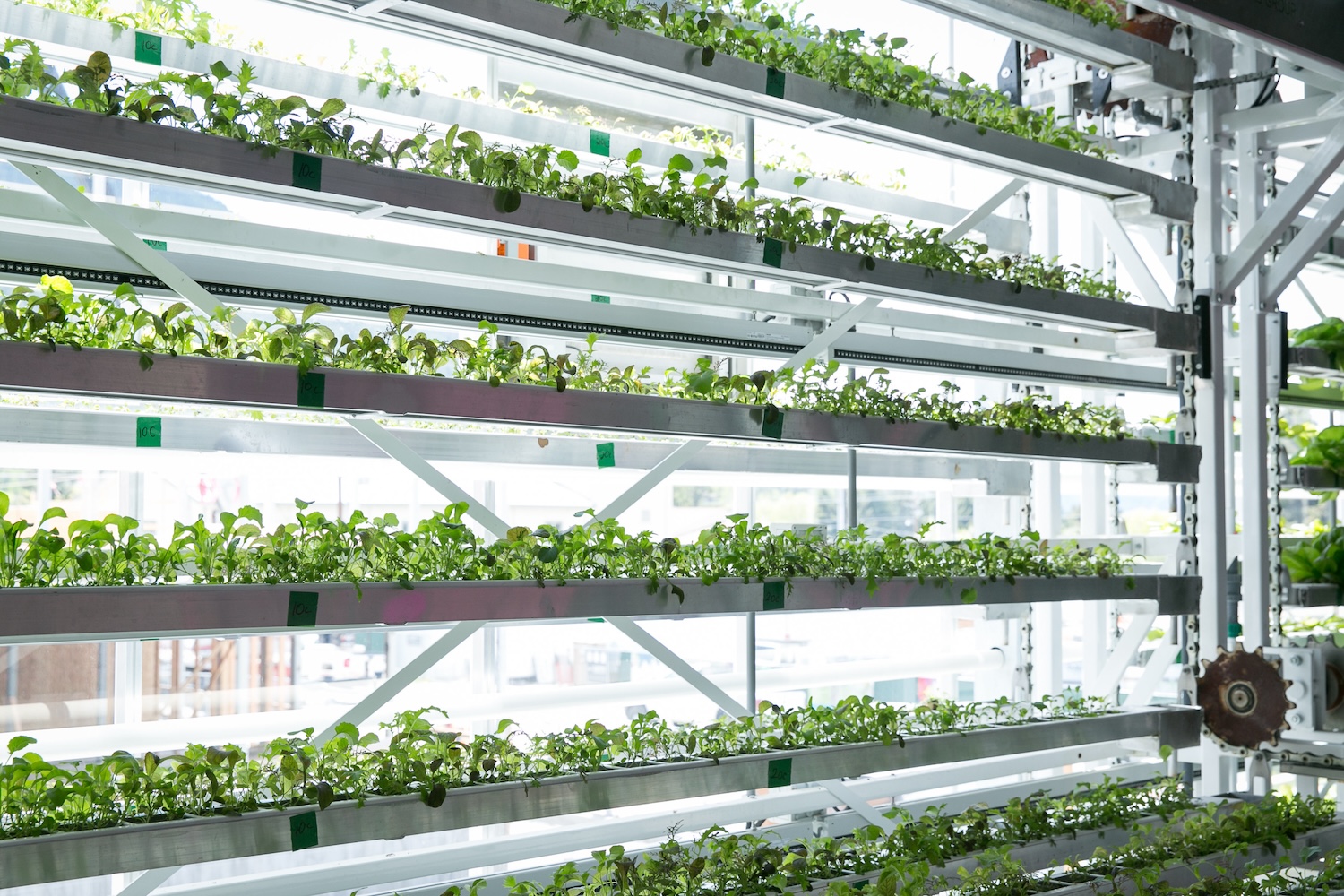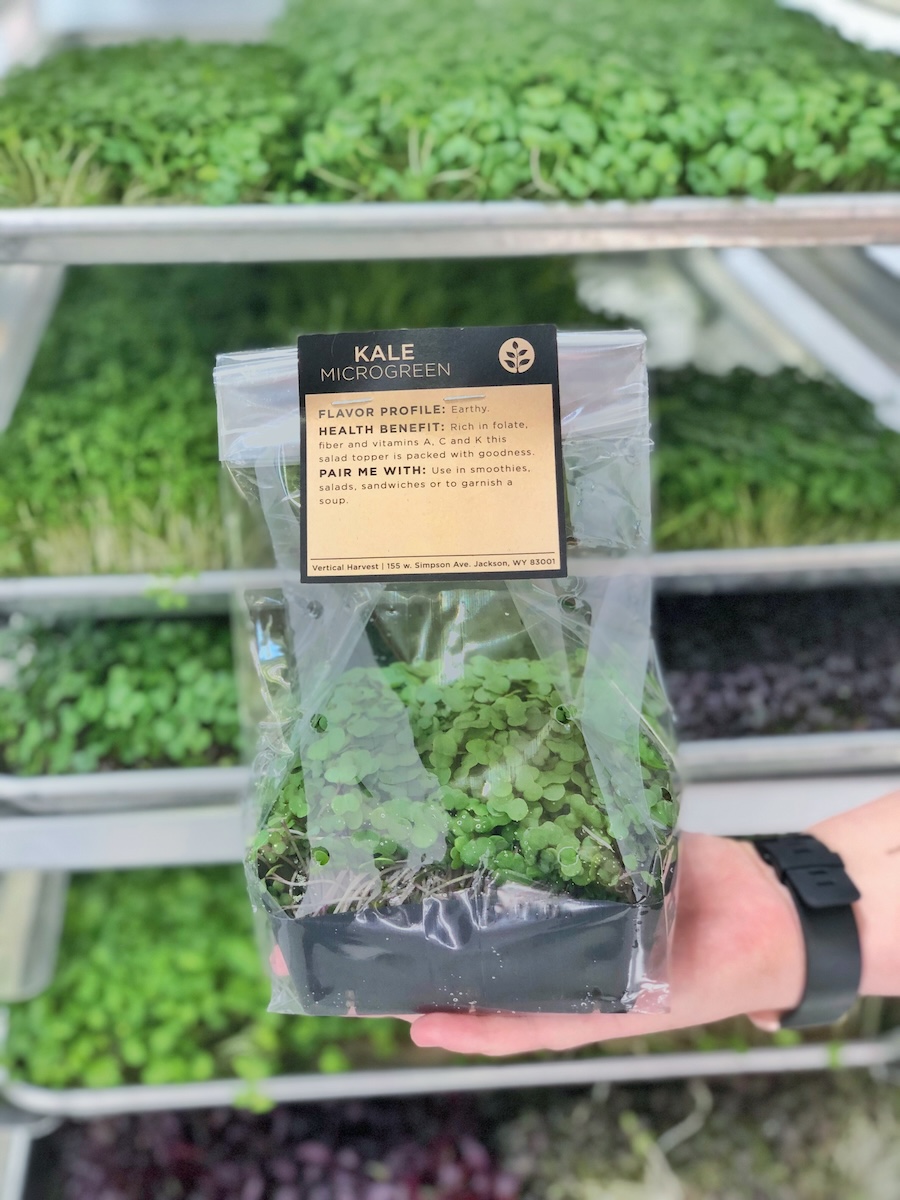
Employees outside of Vertical Harvest's greenhouse in Jackson Hole, Wyoming. (Image courtesy of Vertical Harvest)
“The way we farm and distribute food is a social justice issue, a public health issue, and an economic resiliency issue,” Nona Yehia said.
Yehia is the co-founder and chief executive officer of Vertical Harvest, a company that aims to be an all-in-one solution to these overlapping issues. Not only does the Wyoming-based company provide local, fresh, nutrient-dense produce year-round, but it also provides meaningful work for people with developmental disabilities, who are often confined to low-wage, part-time roles.
During the 2008 recession, there was limited work available for Yehia. She is an architect by trade and decided to use her newfound time to focus on the needs of her community in Jackson Hole, Wyoming. With her co-founders Penny McBride and Caroline Croft Estay, the team identified two seemingly unrelated voids to fill: year-round fresh produce in a place with a four-month growing season, and a job market for people with developmental disabilities.
They set out to address the question: “How could we grow as much food, employ as many people as possible, and do both year round?”
The answer? Vertical Harvest.
The team found a small piece of property — just a tenth of an acre — that they leased from the town to build a greenhouse and start a hydroponic, vertical farm. For this method, the crops are grown in a mix of water and nutrients instead of soil, and the rows are stacked on top of each other instead of spread out over a field. It uses much less land and 85 percent less water than traditional farming methods. And because the crops are grown in a greenhouse, the team can control environmental factors like temperature and moisture levels to cultivate high-quality produce all year.
Today, that tenth of an acre produces up to 100,000 pounds of produce each year.

Fifty percent of the U.S. land base is already used for agriculture, and most fresh produce in the U.S. travels over 1,500 miles before being consumed. With Vertical Harvest, consumers get food that was growing just 24 hours before it's on their plate.
For the last seven years, Vertical Harvest has provided Jackson Hole and surrounding communities with fresh microgreens, lettuces and tomatoes. It not only saves on carbon emissions from food transport, but also helps bolster the local economy.
In 2023, the unemployment rate for people with disabilities in the U.S. was 7.2 percent — about double the general unemployment rate. Vertical Harvest employs 50 people, 40 percent of whom identify with some sort of disability. By employing a sector of the population that generally faces steep barriers to meaningful work, those with developmental disabilities, Vertical Harvest brings more jobs to a wider range of people in the community.
“We have really tried to understand how we create a context where everybody learns together and everybody trains together,” Yehia said.
Vertical Harvest uses what they call the “Grow Well” model, a customized employment method that tailors the individual to the job and the job to the individual. Because of the investment they put into training and retaining their employees, they have an extremely minimal employee attrition rate, Yehia said. That further bolsters the company culture and saves a lot of money that other companies tend to sacrifice to staff turnover.
“That’s a mindset and an approach that builds our entire culture,” she said. “People with disabilities in our town are not only farming the most valuable commodity to any community — fresh, nutritious food — but they will be our leaders and teachers of tomorrow, as we build farms across the country.”

As of now, Vertical Harvest is set to expand to two locations: Westbrook, Maine, and Detroit, Michigan. But the team gets interest every day from municipalities across the nation looking to gain this sort of environmental, social and economic boost to their communities.
“We see ourselves as a food and jobs movement,” Yehia said. “No one can argue with food and jobs. And municipalities are always finding ways to increase the sustainability of the communities in which they lead.”















